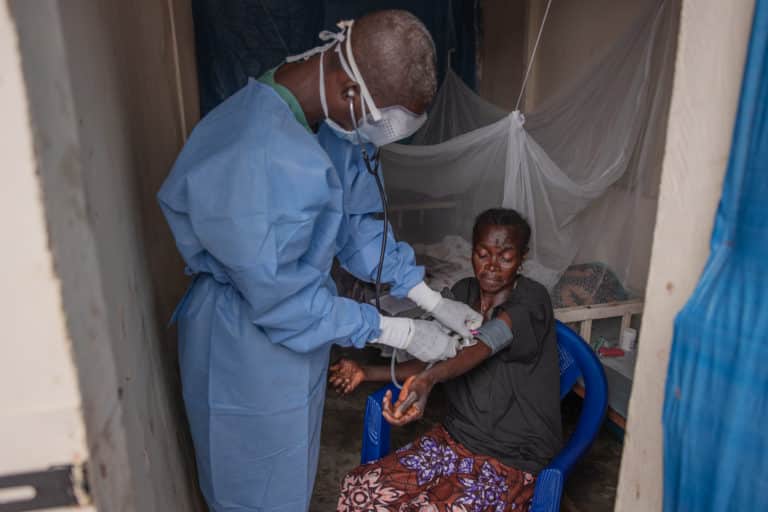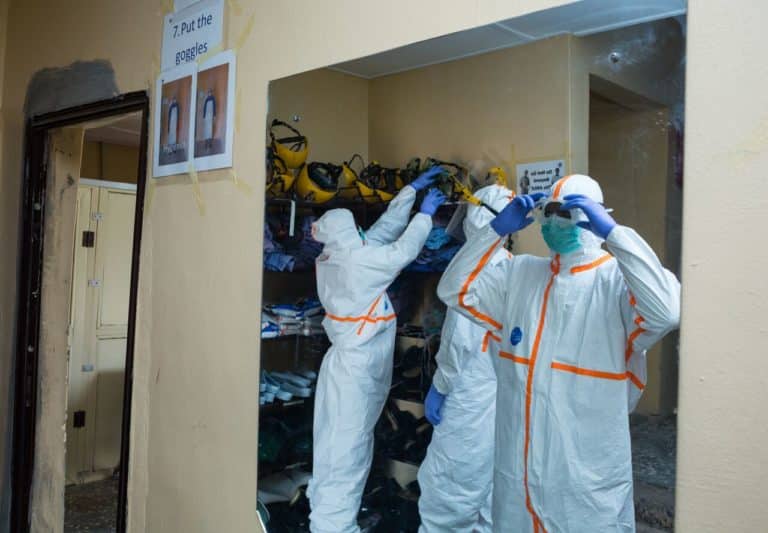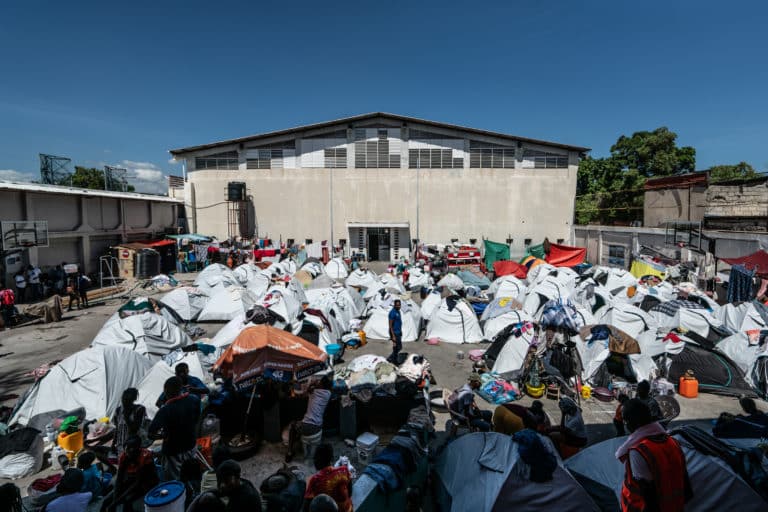The Ebola treatment center in Itipo, a village located 200 kilometers from the city of Mbandaka, will have a 10 bed capacity. The center will be open 7 days a week, 24 hours a day, and in which ALIMA’s medical team will isolate patients, deliver quality medical care, and provide psychosocial care to patients and their families.
“We will work in collaboration with the Congolese authorities and other partners,” said Dr. Billy Sivahera, ALIMA’s Emergency Coordinator in the DRC, “to reinforce prevention measures, contact monitoring and protecting health workers.”
To improve the quality of treatment and patient isolation, the center will include Biosecure Emergency Care Units for Outbreaks (CUBE), which are certified P4 isolation units designed for the treatment of patients suffering from highly infectious diseases with serious potential for outbreaks. “These treatment units allow health workers to perform the technical medical actions needed in reanimation to improve the patient’s chance of survival,” Dr. Sivahera said.
The CUBE was developed in the aftermath of the West African Ebola Epidemic, drawing from the lessons learned during ALIMA’s response in Guinea in 2014. “The CUBE helps to improve communication between patients, medical teams, and families,” said Eric Barte de Sainte Fare, ALIMA’s head of project for this innovation.
The CUBE offers the added advantage of needing fewer medical personnel. It reduces the risk of exposure and contamination, and requires fewer medical materials. Medical personnel benefit from being able to work comfortably, protected from contamination without needing to wear personal protective equipment.
In the event that the outbreak spreads, the CUBE has been designed to be easily transportable, and can be decontaminated, disassembled and reinstalled in other areas if needed.
In the coming days, teams of doctors, nurses, logisticians, and hygiene and sanitation experts will reinforce ALIMA’s team already on the ground. Nearly 15 tons of medical materials and medicines have arrived near the outbreak’s source.
“It’s vital that active outbreak surveillance is done in coordination with all actors,” Dr. Sivahera said, “so that we can locate new cases and ensure that areas of probable transmission are monitored.”
————
The Alliance for International Medical Action (ALIMA) is a humanitarian medical organization that works in close partnership with a network of national medical organizations to provide quality medical assistance for the most vulnerable, in emergency situations or recurring crises.
Based in Dakar, Senegal, ALIMA has treated nearly 3 million patients in 12 countries since it was founded in 2009, and has launched more than a dozen research projects on malnutrition, malaria and the Ebola virus.
In the DRC, ALIMA continues to support the Ministry of Health to provide quality medical and nutritional care to local populations, in particular in the Kasai Region, where conflict and insecurity have led to the deterioration of the humanitarian situation.
In 2017, ALIMA treated more than 16,000 patients for malaria, conducted more than 40,000 ambulatory consultations, administered 7,3000 vaccinations and treated more than 3,000 people suffering from cholera.



